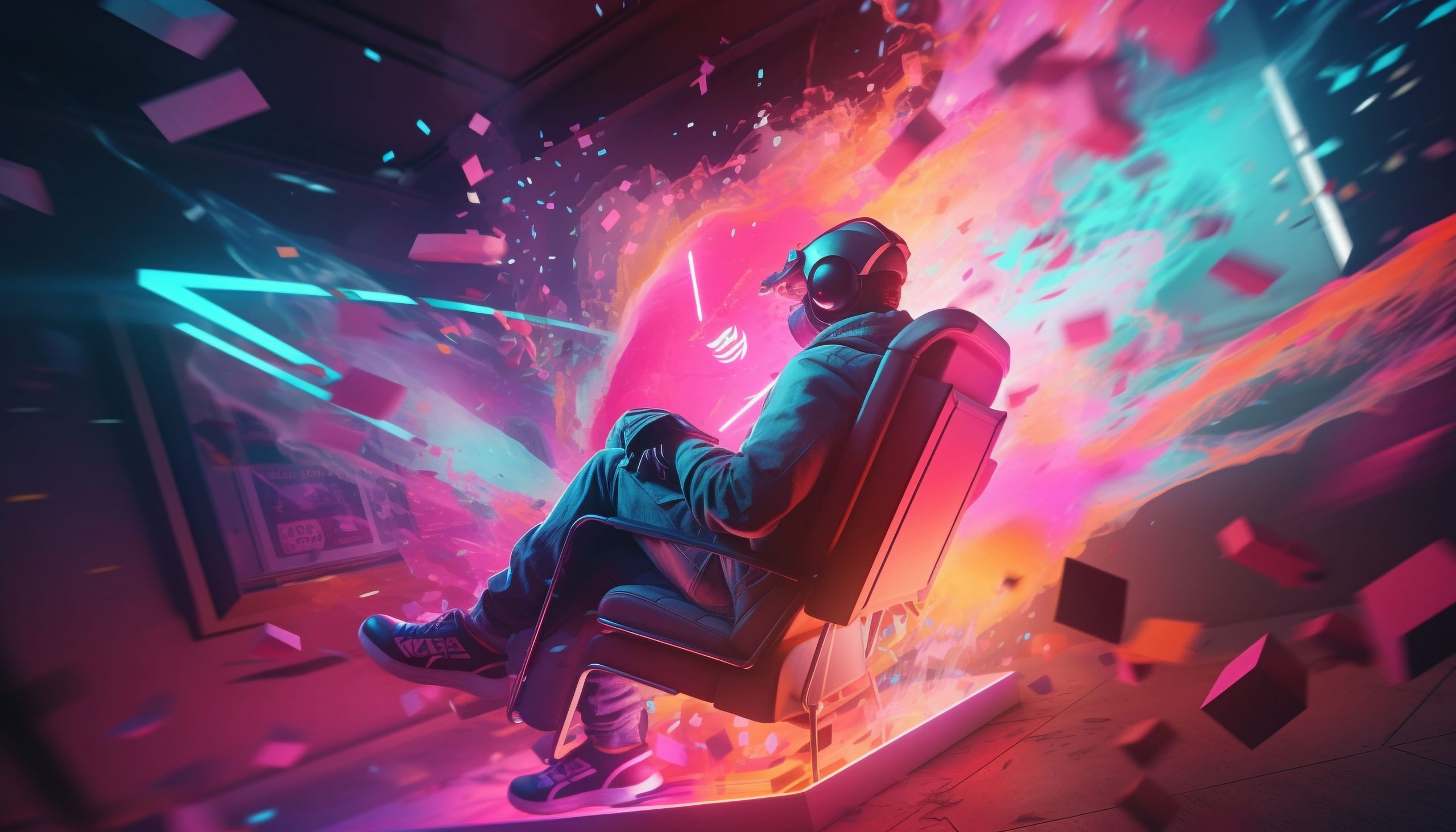When it comes to technological innovation, video games have always been at the forefront. The gaming industry has always pushed boundaries, from the early days of arcade games to the present era of virtual reality and augmented reality experiences. Artificial intelligence (AI) is currently one of the biggest technologies influencing how video games will develop in the future.
AI is the term used to describe computer systems or other machines that are able to carry out tasks that ordinarily require human intelligence. In the context of video games, AI can be used in various ways, from creating realistic environments and characters to adaptive gameplay mechanics that respond to individual player behavior.
The Role of AI in Video Game Creation
The video game industry is undergoing a revolution, and artificial intelligence (AI) is now an essential part of the game development process. It permeates various aspects of game development, including game design, character development, and gameplay mechanics.
Procedural Content Generation
AI plays a substantial role in the automatic creation of game levels, characters, and environments. This not only saves developers considerable time and effort but also offers players dynamic and diverse worlds to explore, enhancing the overall gaming experience.
Adaptive Gameplay Mechanics
AI’s ability to create systems that adapt to player actions in real-time is transforming gameplay mechanics. Whether it’s creating challenging opponents or adjusting the game’s difficulty based on player performance, AI is making games more engaging and interactive.
Simulating Realistic Physics
AI aids in simulating physics within games, adding a layer of authenticity and immersion. The realistic physics provided by AI greatly enhance the player’s experience.
Competitive Virtual Platforms
AI allows players to compete against each other on virtual platforms, enhancing the sense of realism and competition. This gives the gaming experience an additional layer that enhances its excitement and engagement.
Future Possibilities with Machine Learning and Deep Learning
Game developers now have more options thanks to developments in deep learning and machine learning. Within the next ten years, according to some industry experts, AI will be able to handle more than half of game development.
However, rather than replacing human creativity, these tools are expected to streamline the development process, making it faster and more efficient.
Implications and Limitations of AI in Video Game Creation
Even though AI has many benefits, there are some crucial issues to take into account. One important question is whether AI will ever be able to create games without the creative input of humans. Even though AI has amazing powers, there are some things it might not be able to duplicate. It also comes with certain implications and limitations.
Ethical Implications
The introduction of AI in video games brings about ethical considerations. For the purpose of promoting inclusivity and ensuring player welfare, stakeholders must address these issues.
Potential for Unfair Advantage
The integrity of online gaming could be compromised if AI is utilized to develop “cheat” programs that give players an unfair advantage.
Overreliance on AI-Generated Content
Utilizing generative AI may have drawbacks, such as the possibility of over-reliance, which could result in games lacking in originality and creativity.
Player Frustration
While AI can provide challenging opponents, it can also lead to frustration if the AI is perceived as unfair or overly difficult.
Lack of Context Outside Training Data
Another limitation of AI that applies, not just to gaming but to AI in general, is its lack of context outside the training data.
Technical Challenges
Using AI to create adaptive game mechanics can pose technical challenges, such as complexity.
Quality and Engagement Level
In order to create video games, publishers cannot fully replace human labor with AI without sacrificing the product’s quality and degree of player engagement.
Leveraging AI: Opportunities for Game Developers
Despite these limitations, there are numerous areas where game developers can effectively leverage AI. These include:
Automating Game Testing
AI can be utilized to automate the process of game testing, identifying bugs and glitches more efficiently than manual testing. This not only speeds up the development process but also ensures a smoother and more enjoyable gaming experience for players.
Enhancing Player Experiences
Based on player behavior, tastes, and skill levels, AI can produce customized content. Because of this, the game adapts to the player’s preferences and skill level, making for a more captivating and immersive gaming experience.
Dynamic Pricing Models
AI can also be used to explore new business models in gaming. One instance is dynamic pricing, in which the cost of in-game goods or the game itself is instantly changed in response to a number of variables. This approach could potentially increase revenue while ensuring fair pricing for players.
AI Tools for Game Development
The process of developing games can be streamlined by a variety of AI tools. These tools can assist in everything from generating dynamic storylines that evolve based on player actions to creating diverse game scenarios.
Job Opportunities in AI Programming
With the increasing integration of AI in games, there is a growing demand for AI programmers in the gaming industry. This presents significant career opportunities for those with skills in both game development and AI.
So, is AI really disrupting the video game industry?
AI is indeed disrupting the video game industry, but in a positive and transformative manner. It’s allowing developers to create more engaging, personalized, and immersive gaming experiences. From automating tedious tasks like game testing to creating adaptive gameplay mechanics that evolve with player actions, AI is becoming an indispensable tool in game development.
Despite certain limitations and ethical considerations, the opportunities provided by AI far outweigh its challenges. While AI may not fully replace human creativity, it can undoubtedly augment it, providing tools that enable developers to push the boundaries of what’s possible in gaming.
We should anticipate seeing even more cutting-edge AI applications in the gaming sector as research and development continue. The future of gaming is likely to be a blend of human creativity and AI capabilities, leading to games that are more engaging, immersive, and dynamic than ever before.
However, it’s crucial for developers to use AI responsibly, considering ethical implications and striving to create games that are fair, inclusive, and enjoyable for all players. By doing so, they can ensure that the disruption caused by AI leads to a future of gaming that is not just technologically advanced but also socially responsible.
So, yes, AI is disrupting the video game industry, but it’s a disruption that promises exciting possibilities and a new era of interactive entertainment.




